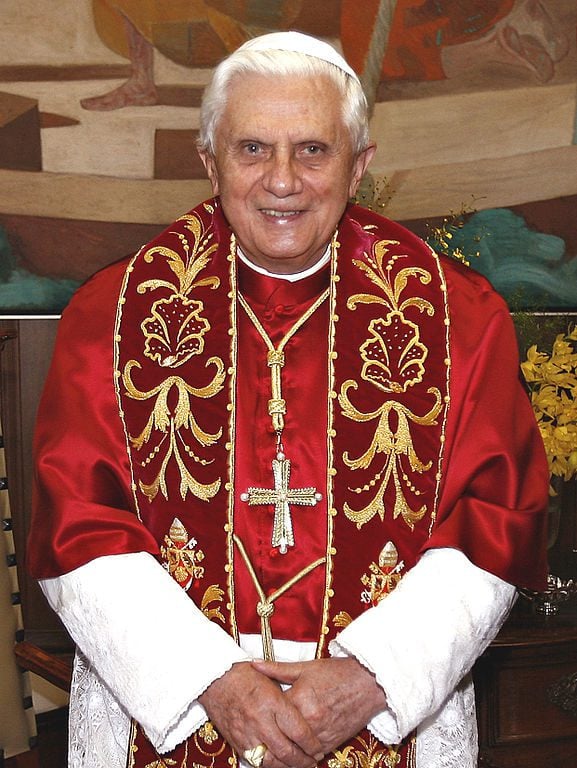***
(8-5-13)
***
I have recently decided to cease using the term radtrad in deference to the expressed wishes of mainstream “traditionalists” who are (in large numbers, we are told) offended by it, since they contend that it implicates all “traditionalists” and that radtrad implies a spectrum upon which both the radtrad and “traditionalist” sit.
***
After thought and reflection (and having my sincerity and intentions and seriousness attacked by “traditionalists” and what I now will be calling “radical Catholic reactionaries”), I decided (cutting through the flak and the silliness) to make the change, as an effort in charity, and of bridge-building. St. Paul taught us in the Bible, after all:
Romans 14:21 it is right not to eat meat or drink wine or do anything that makes your brother stumble.
It’s good to apply this injunction widely and freely. At the same time, I maintained that I had not done anything intrinsically “wrong” by using the term radtrad. The “traditionalist” objection was perhaps crystallized in an article by Kevin M. Tierney, entitled, “Why We Should Stop Saying ‘Radical Traditionalist’ and ‘Rad Trad'” (Catholic Lane, 7-30-13). Some excerpts:
At best the phrase is a relic of a time that is no longer relevant. At worst, the term is creating animosity and perpetuating a growing sense of tribalism within Catholicism, especially in America. . . .If we take this distinction seriously, then how can one not say that implicit in all traditionalists is a rebellious spirit that will embrace erroneous views or enter into schism? Let us set the record straight: Stating an ecumenical council actually teaches heretical doctrine is wrong no matter who makes that claim. Deliberately separating yourself from communion with the Roman Pontiff is wrong no matter what language we like our liturgy in. If you believe there are good traditionalists, then it must follow that these so called radical traditionalists aren’t actually traditionalists at all.
If we take this distinction seriously, then how can one not say that implicit in all traditionalists is a rebellious spirit that will embrace erroneous views or enter into schism? . . . If you believe there are good traditionalists, then it must follow that these so called radical traditionalists aren’t actually traditionalists at all.
In a comment on his own website on 2 August 2013, Kevin made his criticism even more pointed:
In this climate we’re going to plant our flag upon a term invented as an insult for a polemical age? Or if we choose something else, still use it as an insult which you know will stigmatize people? It seems entirely alien to the times. How often do you think people are going to come back to full communion when they have some insulting name attached to them?
And again, the day before (replying directly to me):
We would love to have you in the interest of charity stop using those terms. Not because anyone deserves it, or this or that compromise has been made, but because it’s the right thing to do.
Kevin also made the claim (7-31-13 on his site) that the Church doesn’t use such terminology (it was — I guess he thinks — merely invented by us wascally wascal apologists and our ilk):
There’s a reason Holy Mother Church doesn’t call the SSPX or sedevacantists “radtrads” even though she seriously disagrees with their positions. . . .
You lose nothing from dropping that term. In fact, you gain something: you’d be stunned how much goodwill you can come to the table with when you aren’t starting out your discussion by mocking someone. . . .
This is the way of the Church, following her should be sufficient.
In the end, I’ll grant you the right strictly speaking to use such labels. Yet why don’t we ask ourselves: Is this actually doing any good?
Again, replying directly to me on his site (7-29-13), Kevin opines:
We really don’t need a name. . . .
So let’s not say it is required. It is required for YOU. YOU feel the need to label everything for your own conscience sake. . . .
So the errors of those you call “radtrads” are just wrong, and just classify them as wrong. That you feel the need to continue a classification to make things easy on yourself…. just proves that the apologetics approach to things isn’t always the best approach.
Now, lo and behold, I learned last night that Pope Francis has recently used the same sort of terminology as radtrad: “extreme traditionalists.” Thus, he violated the “code of conduct” that Kevin has been writing so vehemently about (with the extra irony of Kevin appealing in part to the pope in his argument that radtrad or suchlike is a remnant of a bygone era). Here is what the Holy Father stated in an interview in late May, as translated by Fr. Tim Finigan on his “traditionalist” site, The Hermeneutic of Continuity (granted the “traditionalist” seal of approval from Fr. John Zuhlsdorf):
Then it was the turn of the bishop of Conversano and Monopoli, Domenico Padovano, who recounted to the clergy of his diocese how the priority of the bishops of the region of Tavoliere had been that of explaining to the Pope that the mass in the old rite was creating great divisions within the Church. The underlying message: Summorum Pontificum should be cancelled, or at least strongly limited. But Francis said no.
Mgr Padovano explained that Francis replied to them saying that they should be vigilant over the extremism of certain traditionalist groups but also suggesting that they should treasure tradition and create the necessary conditions so that tradition might be able to live alongside innovation. [my bolding]
The Italian, from the article Fr. Finigan was translating, reads: “estremismi di certi gruppi tradizionalisti”.
Is that so? In one fell swoop, then, the Holy Father “refutes” this entire line of reasoning that Kevin has adopted for his proposal, which is sound on other less absolute (or excessively “dogmatic”) grounds. The argument from charity and bridge-building; avoiding offense, is a good one, and I agree and am acting accordingly. But insofar as Kevin and others wish to make the case that we who have used the term radtrad were — all along — insufferably arrogant and insulting (complete with his pseudo-psychological jargon about our supposedly nefarious need to create unnecessary and divisive “labels”), it falls completely flat, since the pope is on our side.
I don’t see any way of overcoming this. It’s not a matter of an infallible statement. That’s irrelevant. The point here is that the pope casually used a term in description of certain “traditionalists.” It was in his head; it wasn’t utterly foreign to his thinking. It wasn’t foreign at all. Kevin claimed that it shouldn’t be done, but the pope did it (back to the “more Catholic the the pope” theme!).
Pope Benedict XVI, as Cardinal Ratzinger, before he became pope, used the same terms:
Whoever accepts Vatican II, as it has clearly expressed and understood itself, at the same time accepts the whole binding tradition of the Catholic Church, particularly also the two previous councils . . . It is likewise impossible to decide in favor of Trent and Vatican I but against Vatican II. Whoever denies Vatican II denies the authority that upholds the other two councils and thereby detaches them from their foundation. And this applies to the so-called ‘traditionalism,’ also in its extreme forms. . . . It is our fault if we have at times provided a pretext (to the ‘right’ and ‘left’ alike) to view Vatican II as a ‘break’ and an abandonment of the tradition.
(The Ratzinger Report, San Francisco: Ignatius, 1985, 28-29, 31)
Therefore, in summary, certain things follow:
1) Kevin argued that radtrad is not the language of the magisterial Church. Why, then, did (and do) folks like Mark Shea, Jimmy Akin, Fr. Dwight Longenecker, Dr. Taylor Marshall, Pete Vere, myself, and others use it? Kevin argued that it was the apologetics mentality and polemical overkill and an extreme lack of charity. Unfortunately, for his case, it turns out that the Church as represented by the current pope and the previous one, actually does see things in these terms. “Extremist traditionalist” or “so-called ‘traditionalism’ . . . in its extreme forms” represent precisely the same sort of language that has been used for years by critics of radical Catholic reactionaries in the apologetics world (a use that Kevin has characterized as “dumb”). See, for example, the “Ultra-Traditionalism” page at The Catholic Legate or the longstanding web page from apologist “Matt1618”: “Ultra-Traditionalists”.
“Extremist traditionalist” and “so-called ‘traditionalism’ . . . in its extreme forms” are clearly synonyms of both “ultra-” or “radical traditionalism” (i.e., radtrad). In fact, the two popes use precisely the same terminology that I utilized in my recent book, originally entitled, Mass Movements: The Extreme Wing of “Traditionalism,” the New Mass, and Ecumenism. That book came out in December, so I was using that phraseology five months before the Holy Father’s documented use of it in May.
Moreover, I have used similar language in the name of my web page devoted to radical Catholic reactionaries (RCRs or “RadCathRs” in my recently adopted terminology); e.g., (formerly): Catholic “Traditionalism” and its Extremist “Radtrad” Fringe. I am planning (as of this writing) on changing the name of both, in order to avoid “traditionalists” feeling that they are being tarred with the same brush (they never were in my analyses, but they thought they were). I probably still will, but (precisely as I stated), it is not because I was “wrong” — Period! — It’s because I am trying to avoid needless offense.
2) A second argument from Kevin and his allies also falls flat. This was the objection to the so-called “spectrum.” Most apologists who have been dealing with the phenomenon of radical Catholic reactionaries have noted that there is a spectrum, whereby if one keeps moving further to the “right” one can end up in the SSPX, or further than that, sedevacantism (the view holding that there is no sitting pope). Mainstream “traditionalists” object to this (which is precisely the main thing lying behind Kevin’s loud complaint and article referenced above). They deny that they are on any sort of spectrum with what we have been calling radtrads. They see themselves as the only “traditionalists” worthy of that name, and the radtrads or extremists or ultras as merely wackos and wingnuts.
The problem here, again, is that the pope didn’t follow that line of thinking at all. He used the description, “the extremism of certain traditionalist groups.” Thus, for him, they are on the same spectrum as “traditionalists.” There are “traditionalists” who are “extreme,” just as there are those who are “radical” or “ultra.” He didn’t completely oppose the extremists from the “traditionalists”; rather, they were on the far right of the same spectrum. The “traditionalist” label is still there as part of it (what Kevin and “traditionalists” en masse — so we are told — object to so stridently). Pope Benedict XVI did the same by referring to “the ‘right’ and ‘left'”.
This has been our thinking as apologists and defenders of the pope and Vatican II and Holy Mother Church, and it is confirmed as correct. I pointedly denied the argument about the lack of a spectrum, at the same time I was willing to change my terminology, and changing the terms is no evidence whatsoever that I am denying a spectrum.
3) An argument has been set forth by Kevin and some of his friends (notably, Jeffrey Stuart), that radtrad was the “immoral equivalent” of neo-Catholic. The latter is the pet term used by radical Catholic reactionaries such as Chris Ferrara and John Vennari, and The Remnant website and organization. We plain old “Catholics” to whom it is directed have objected for years, on the grounds that it has no pedigree or history of usage in the Church. But this was laughed off, and it was said that the two are instances of the exact same thing (i.e., we are hypocrites for objecting to neo-Catholic while using radtrad). Thus, in his Catholic Lane article, Kevin explains how he used it himself up till 2005, and then saw the light and stopped. Now he argues that radtrad is the polemical equivalent, thrown back at the radicals who use neo-Catholic: as if we have been making the same mistake that he used to commit.
But again, it is exactly as I have argued: radtrad has a parallel in papal usage, in “extreme traditionalism,” whereas neo-Catholic is non-existent in magisterial Church usage. If Kevin or his friends think otherwise, they are welcome to produce proof that it has ever been used by popes or the Church (the magisterium).
If we want a pure “insult,” there it is. But if radtrad is a pure insult, then the Holy Father is entering into the same thinking and usage, by his equivalent term, “extremist traditionalist.”
4) Pope Benedict XVI also bolsters my argument that I’ve made for at least 15 years now, that “traditionalist” itself should be an unnecessary term to use. He does this by referring to “the so-called ‘traditionalism.’ ” I do it by almost always putting the word in quotation marks. I’m willing to use it, because this is how people refer to themselves and how others refer to them, but with this little “protest”: precisely as Pope Benedict XVI did (as Cardinal Ratzinger).
Kevin Tierney tries to make an analogy of “traditionalist” with “Dominicans” or “Franciscans” etc. But can we imagine a pope referring to “the so-called ‘Dominicans'”? Isn’t it great to “think with the Church”?
Methinks Kevin’s “big” article and many others on his own website are in need of some serous revision. I’ll be spending scores of hours of my time removing terms out of charity that were never intrinsically “wrong.” Now it’s Kevin’s turn to revise several of his arguments that engage in massive rhetorical overkill and melodramatic exaggeration, in light of two popes’ remarks. If I can do it out of charity to “traditionalists,” he ought to do it, too, in deference to (and in light of) popes. As he himself stated just six days ago: “This is the way of the Church, following her should be sufficient.”
Amen!
*****













